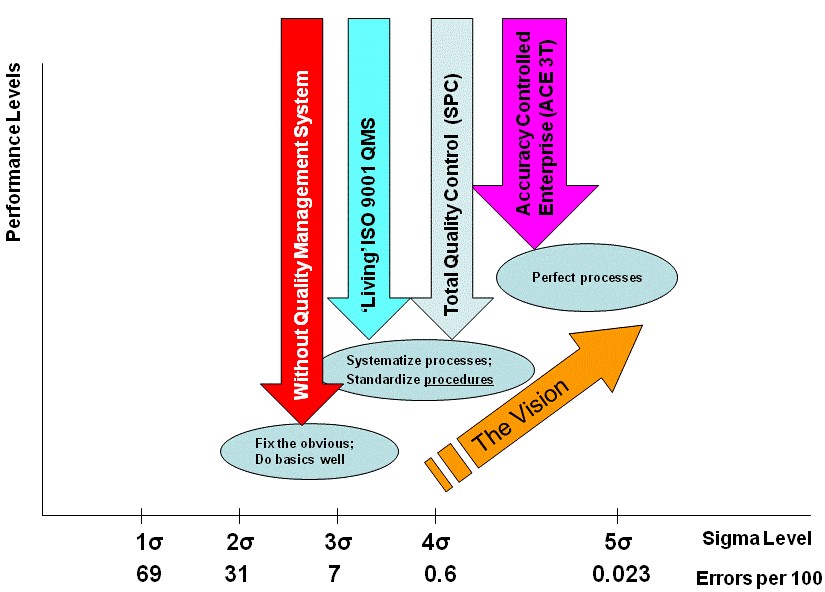How much revenue is your company missing due to unavoidable human failure rates?
How much is 10% of your company’s revenue? Human error is natural and sometimes even necessary to help us learn avoid making the same mistakes again....
3 min read
 Franz Reuchlein
:
Nov 19, 2015 6:52:26 PM
Franz Reuchlein
:
Nov 19, 2015 6:52:26 PM

Productivity in the digital economy may turn every classic measurement of productivity on its head. Productivity can be expressed as the ratio of output to inputs used in the production process. More out than in, means value creation and productivity. There is personal productivity, enterprise productivity, manufacturing productivity, labor productivity, and material productivity. From an enterprise and business standpoint, output can be measured in revenue, profit, price and gains.
In the services economy, productivity needs to be looked at from a new vantage point. Repetitive services done by people are a form of wasteful production and they are killing employee contribution.
In a manufacturing environment, productivity can be measured as output (revenue) over input (materials, labor, and overhead costs). Personal productivity, whether eliminating chit-chat partners, building routines or planning more effectively, have more in common with lean thinking and eliminating waste than it actually has to do with truly increasing the production of value. Input is more difficult to measure in the knowledge economy than output.

Labor cost may seem like an easy measurement, but underlying that dollar value are other hidden value additions, such as culture, leadership, expertise, experience and flexibility. So, two organizations of the same cost, can be actually quite different in their ability to drive business value or output. These differences can be attributed to the type of leadership, the type of connectedness of the team to draw individuals to the company, or just plain luck.
Value is no longer production. There is criticism of the United States economy on its lack of production, we don’t make anything, we don’t produce anything, and we don’t build anything - except ideas. Would you have rather owned gold over the past 10 years of Apple stock? Everyone owns a cell phone and a TV because the price of production and materials is continuously pushed down. The price of value, however, is pushed up. Value is a need met. Connect with friends, search the internet more effectively, owning a product that works and delivers are all signs of the new service economy.
I remember my Dad, an operations executive, showing me a factory, some 25 years ago that was fully robotic in Long Island, NY. He told me what once took 200 people now takes 2. Repetition is therapeutic. Washing dishes, meditation, sweeping halls, updating spreadsheets, doing what you know, building the same house next to the same house, creating a business strategy that is very close to last years business strategy, updating spreadsheets, yes again, are all forms of repetitive production.
Alternatively, there is a world of changing needs. To make time to design and develop services or answers to those needs calls for extensive automation. Robotics won’t solve the need for service automation, but intelligent software can and does. Automation brings full financial control to the process itself by increasing the measurability and decreasing the variance of cost. Take your most effective production process and eliminate all possible waste, by automating.
What about people? People are innately wasteful, in the very fact that thoughts are random, the brain is misunderstood and yet there is, from experience, conversation, dialogue and work, connections that bring the biggest value possible - new ideas that meet the needs of a changing world.
Chuck Close, during and interview with Charlie Rose, shared his thoughts on inspiration, do not “wait around for inspiration. Inspiration is for amateurs; the rest of us just show up and get to work. If you wait around for the clouds to part and a bolt of lightning to strike you in the brain, you are not going to make an awful lot of work. All the best ideas come out of the process; they come out of the work itself.” That work is not only production, it is experience, experimentation, trial and error and failure and success. So where is production valuable to people? New production, not repetitive production. Since we are entering the service economy, so to those services that are repetitive is also a form of wasteful production when done by people.
Repetition is killing your employee’s contribution. Your employees contribution to the bottom line is much more difficult to measure, but creating time for that value creation should be core to your business strategy.

How much is 10% of your company’s revenue? Human error is natural and sometimes even necessary to help us learn avoid making the same mistakes again....
ARE COMPANIES STILL GATHERING BILLING DATA MANUALLY? Today, even the most complex billing models can be digitalized and automated. However, there are...
)
Single Source of Truth for Billing Brings Peace of Mind for the Service Provider And the Customer I wish to share some great practical learnings from...